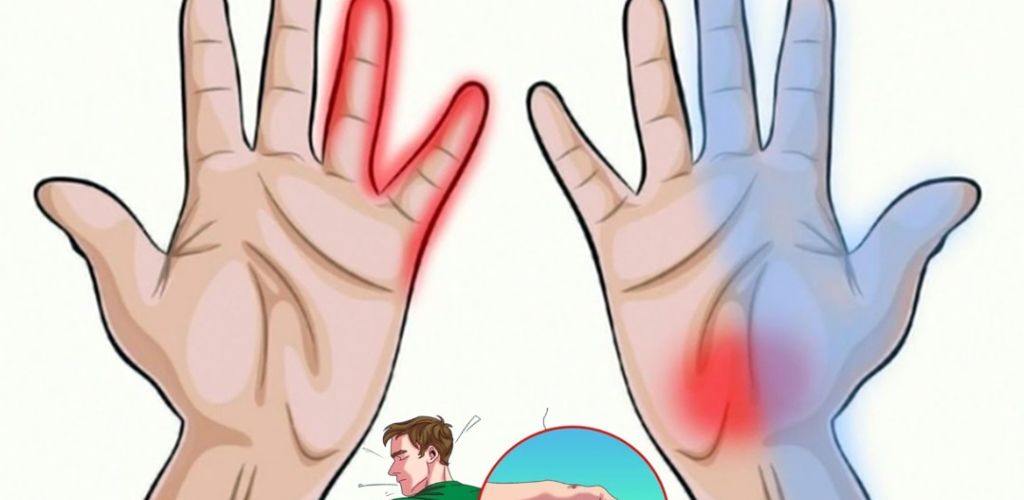01.03.2025
7 reasons why your hands are tingling and how to eliminate the unpleasant sensations
Tingling hands, also known as paresthesia, can be a disconcerting sensation. It’s crucial to understand that this symptom can arise from a variety of causes, ranging from simple temporary issues to more complex medical conditions. Here’s a breakdown of 7 potential reasons, and some general advice:
Potential Causes:
- Carpal Tunnel Syndrome:
- This occurs when the median nerve in your wrist is compressed, leading to tingling, numbness, and pain in your fingers and hand.
- Repetitive hand movements, like typing, can contribute to this.
- Pinched Nerve:
- A pinched nerve in your neck or upper back can cause tingling that radiates down your arm and into your hand.
- This can be caused by injuries, poor posture, or arthritis.
- Peripheral Neuropathy:
- This involves damage to the peripheral nerves, which can result from conditions like diabetes, vitamin deficiencies (B12), or certain medical treatments.
- It often causes tingling, numbness, and pain in the hands and feet.
- Vitamin Deficiencies:
- A lack of certain vitamins, particularly B vitamins (B1, B6, B12), can affect nerve function and cause tingling.
- Circulatory Issues:
- Poor blood circulation can lead to tingling and numbness in the extremities.
- Conditions like Raynaud’s phenomenon can cause blood vessels to narrow, reducing blood flow.
- Anxiety and Hyperventilation:
- During periods of intense anxiety or hyperventilation, changes in breathing patterns can cause tingling in the hands and feet.
- Medical Conditions:
- Certain medical conditions, such as multiple sclerosis (MS), lupus, and rheumatoid arthritis, can cause tingling as a symptom.
How to Address Tingling Hands:
- Identify Potential Triggers:
- Pay attention to activities or positions that might be triggering the tingling.
- If repetitive motions are a factor, take frequent breaks.
- Lifestyle Adjustments:
- Maintain a healthy diet rich in vitamins and minerals.
- Stay hydrated.
- Manage stress through relaxation techniques.
- Ensure proper posture.
- Medical Evaluation:
- If the tingling is persistent, severe, or accompanied by other symptoms, consult a doctor.
- They can perform a physical examination and order tests to determine the underlying cause.
- When to Seek Immediate Help:
- If tingling is accompanied by:
- Sudden weakness
- Severe pain
- Difficulty speaking
- Dizziness
- Then please seek immediate medical attention.
- If tingling is accompanied by:
Important Note: Self-diagnosis can be risky. Always consult a healthcare professional for accurate diagnosis and treatment.
